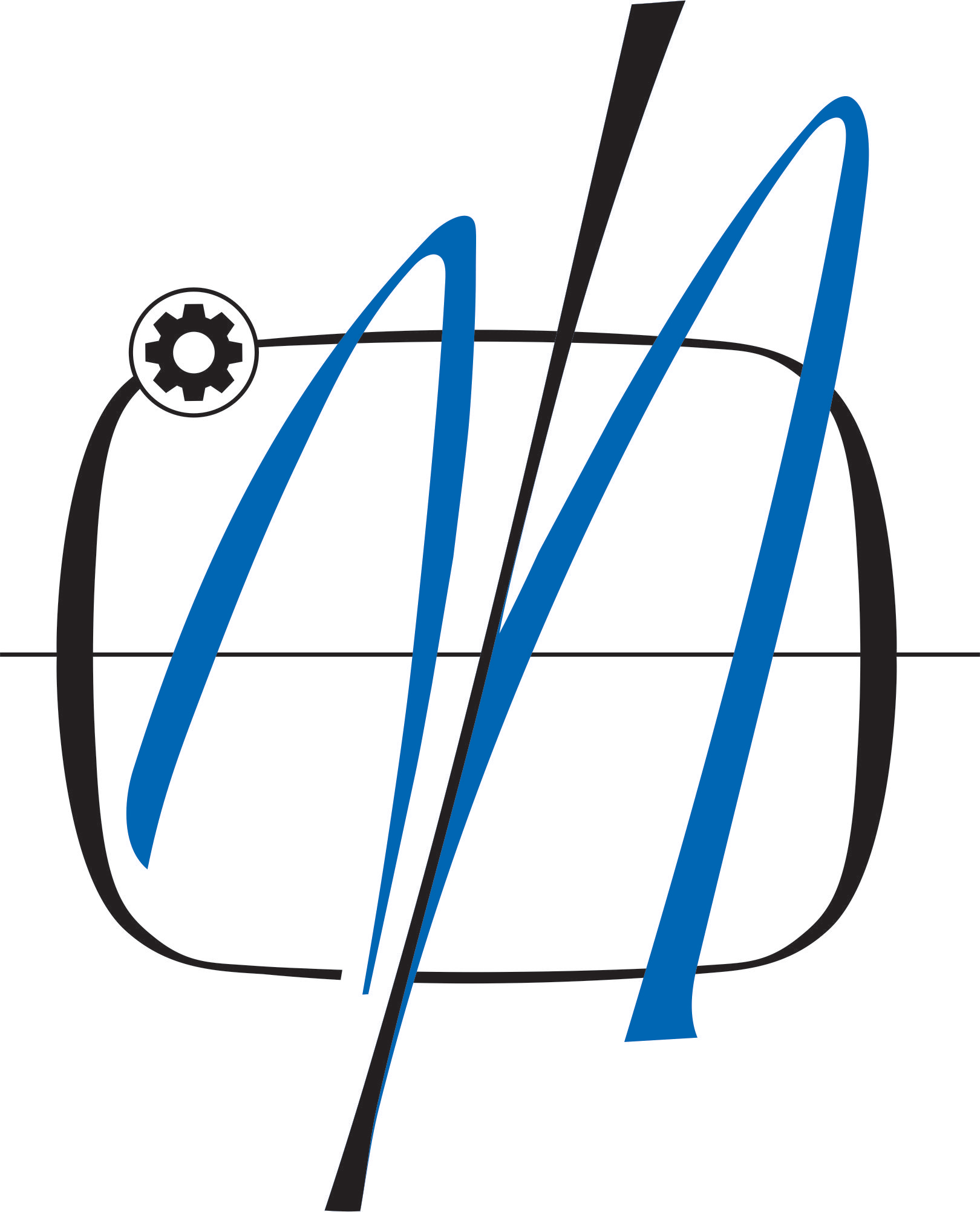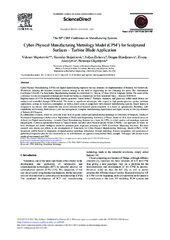Приказ основних података о документу
Cyber-Physical Manufacturing Metrology Model (CPM3) for Sculptured Surfaces - Turbine Blade Application
| dc.creator | Majstorović, Vidosav D. | |
| dc.creator | Stojadinović, Slavenko | |
| dc.creator | Živković, Srđan D. | |
| dc.creator | Djurdjanović, Dragan | |
| dc.creator | Jakovljević, Živana | |
| dc.creator | Gligorijević, Nemanja | |
| dc.date.accessioned | 2022-09-19T18:15:49Z | |
| dc.date.available | 2022-09-19T18:15:49Z | |
| dc.date.issued | 2017 | |
| dc.identifier.issn | 2212-8271 | |
| dc.identifier.uri | https://machinery.mas.bg.ac.rs/handle/123456789/2650 | |
| dc.description.abstract | Cyber-Physical Manufacturing (CPM) and digital manufacturing represent the key elements for implementation of Industry 4.0 framework. Worldwide, Industry 4.0 becomes national research strategy in the field of engineering for the following ten years. The International Conference USA-EU-Far East-Serbia Manufacturing Summit was held from 31st May to 2nd June 2016 in Belgrade, Serbia. The result of the conference was the development of Industry 4.0 Model for Serbia as a framework for New Industrial Policy - Horizon 2020/2030. Implementation of CPM in manufacturing systems generates " smart factory". Products, resources, and processes within smart factory are realized and controlled through CPM model. This leads to significant advantages with respect to high product/process quality, real-time applications, savings in resources consumption, as well as, lower costs in comparison with classical manufacturing systems. Smart factory is designed in accordance with sustainable and service-oriented best business practices/models. It is based on optimization, flexibility, self-adaptability and learning, fault tolerance, and risk management. Complete manufacturing digitalization and digital factory are the key elements of Industry 4.0 Program. In collaborative research, which we carry out in the field of quality control and manufacturing metrology at University of Belgrade, Faculty of Mechanical Engineering in Serbia and at Department of Mechanical Engineering, University of Texas, Austin in USA, three research areas are defined: (a) Digital manufacturing - towards Cloud Manufacturing Systems (as a basis for CPS), in which quality and metrology represent integral parts of process optimization based on Taguchi model, and (sic) Cyber-Physical Quality Model (CPQM) - our approach, in which we have developed and tested intelligent model for prismatic parts inspection planning on CMM (Coordinate Measuring Machine). The third research area directs our efforts to the development of framework for Cyber-Physical Manufacturing Metrology Model (CPM3). CPM3 framework will be based on integration of digital product metrology information through metrology features recognition, and generation of global/local inspection plan for free-form surfaces; we will illustrate our approach using turbine blade example. This paper will present recent results of our research on CPM3. | en |
| dc.publisher | Elsevier Science Bv, Amsterdam | |
| dc.rights | openAccess | |
| dc.rights.uri | https://creativecommons.org/licenses/by-nc-nd/4.0/ | |
| dc.source | Manufacturing Systems 4.0 | |
| dc.subject | Simulation | en |
| dc.subject | Modeling | en |
| dc.subject | Metrology | en |
| dc.subject | CPM | en |
| dc.title | Cyber-Physical Manufacturing Metrology Model (CPM3) for Sculptured Surfaces - Turbine Blade Application | en |
| dc.type | conferenceObject | |
| dc.rights.license | BY-NC-ND | |
| dc.citation.epage | 663 | |
| dc.citation.other | 63: 658-663 | |
| dc.citation.rank | M33 | |
| dc.citation.spage | 658 | |
| dc.citation.volume | 63 | |
| dc.identifier.doi | 10.1016/j.procir.2017.03.093 | |
| dc.identifier.fulltext | http://machinery.mas.bg.ac.rs/bitstream/id/1374/2647.pdf | |
| dc.identifier.scopus | 2-s2.0-85028681766 | |
| dc.identifier.wos | 000418465500111 | |
| dc.type.version | publishedVersion |


